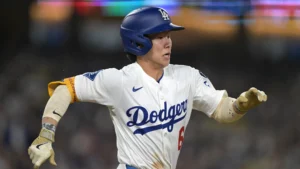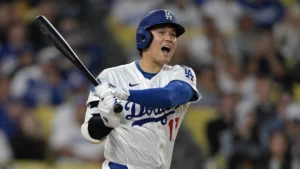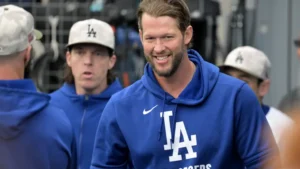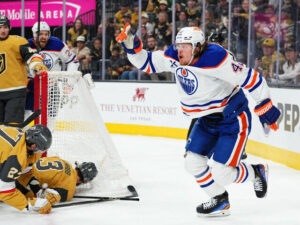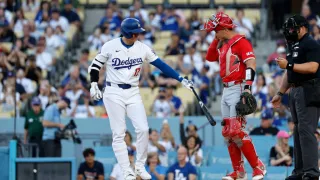
The second installment of the Freeway Series between the Los Angeles Angels and the Los Angeles Dodgers brought with it all the tension, talent, and theatrics that fans across Southern California have come to expect from this interleague rivalry. While separated by only thirty miles, the two teams exist in entirely different competitive realities. The Dodgers, perennially among the favorites to win the National League pennant and with a 2025 payroll stacked with All-Stars and MVPs, came into the game flexing the muscle of a World Series champion still very much in form. The Angels, on the other hand, are a team searching for identity, battling inconsistency, and navigating the post-Shohei Ohtani era with a blend of hopeful youth and underperforming veterans.
The game was held at Dodger Stadium, with fans from both teams flooding Chavez Ravine hours before first pitch. The sea of red and blue in the stands reflected the bifurcated allegiance of the region, and the atmosphere carried the weight of more than just another early-season matchup. For the Dodgers, every game is an opportunity to assert their dominance in the National League and send a message to their playoff rivals. For the Angels, facing the Dodgers is both a challenge and an opportunity—a chance to measure themselves against the gold standard of the league and perhaps spark something in a season that has yet to find consistent footing.
Right-hander Walker Buehler, continuing his return to form after a lengthy injury layoff, took the mound for the Dodgers. On the Angels’ side, lefty Reid Detmers was tasked with quieting one of the most potent lineups in baseball. From the outset, it was clear that both teams came prepared to compete. Detmers opened the game with a bit of nerves, walking Mookie Betts on five pitches, and Betts, ever the catalyst, stole second base on the next pitch. Detmers settled down, inducing a groundout from Shohei Ohtani—now in Dodger blue—and striking out Freddie Freeman with a wicked curveball to strand Betts at third. It was a small but significant early victory for the young southpaw.
In the bottom half of the first, Buehler looked sharp, mixing his fastball and cutter with precision. Angels leadoff hitter Mickey Moniak managed a seeing-eye single but was promptly erased on a double play grounder off the bat of Mike Trout. For Trout, who has struggled to stay healthy in recent years, these games carry extra importance—not just for the standings, but for his legacy. Facing the team that once shared his former teammate Ohtani and now boasts stars like Betts and Freeman, Trout knows that each at-bat is a moment to reaffirm his greatness.
The scoring began in the third inning. With one out, Will Smith roped a double down the left field line. Jason Heyward, who’s enjoyed a renaissance as a platoon bat for the Dodgers, followed with a soft single that moved Smith to third. Detmers induced a pop-up from Gavin Lux for the second out, and looked like he might escape the jam. But Mookie Betts, with his compact swing and uncanny situational awareness, poked an outside pitch into shallow center field. Smith scored, and the Dodgers took a 1-0 lead. The crowd erupted as Betts once again proved why he’s among the game’s elite.
The Angels answered quickly in the top of the fourth. Taylor Ward led off with a double off the left-center wall, taking advantage of a rare missed location from Buehler. After Nolan Schanuel worked a walk, Logan O’Hoppe lined a fastball into the right-center gap. Ward scored easily, and the Angels tied the game 1-1. Buehler bore down from there, getting Jo Adell to pop out and then striking out Moniak on a perfectly located slider.
As the game progressed into the middle innings, both pitchers found their rhythm. Detmers, showing the poise that made him a first-round pick out of Louisville, navigated the Dodgers’ order with a calm efficiency, striking out Ohtani on a high fastball in the fifth and working around a leadoff walk in the sixth. Buehler, meanwhile, leaned more heavily on his curveball, which he used to freeze Trout for a called third strike in the sixth, drawing a rare chorus of groans from Angels fans in attendance.
The game remained tied into the bottom of the seventh, when Dodgers manager Dave Roberts made a calculated decision to pinch-hit Teoscar Hernández for James Outman with a runner on second and one out. Detmers had been solid, but his pitch count was approaching 100. Angels manager Ron Washington elected to stick with his starter, trusting the left-on-right matchup and Detmers’ recent dominance. Hernández, known for his power against lefties, wasted no time. He jumped on the first pitch, a hanging slider, and launched it 407 feet into the left field pavilion. The stadium exploded as the Dodgers grabbed a 3-1 lead.
Washington went to his bullpen after the home run, calling on right-hander Ben Joyce to stop the bleeding. Joyce, whose fastball regularly touches triple digits, overpowered Betts to end the inning but the damage was done. With just six outs remaining and the Dodgers’ bullpen looming, the Angels had work to do.
To their credit, the Halos did not go quietly. In the top of the eighth, with Ryan Brasier on the mound for the Dodgers, Trout worked a full count walk and Ward followed with a sharp single to right. With two on and one out, Schanuel stepped to the plate. A promising young hitter with a mature approach, Schanuel battled through a nine-pitch at-bat before sending a line drive into the left field corner. Trout scored, and Ward advanced to third. The Angels trailed 3-2 and had the tying run 90 feet away.
Roberts called on Daniel Hudson to face O’Hoppe, who had already driven in the Angels’ first run. Hudson fell behind 2-0 before getting a chopper to third. Max Muncy charged hard, gloved it cleanly, and threw home. Ward was out by a step. It was a gutsy send by the Angels’ third base coach, and one that would ultimately cost them. With runners on first and second and two out, Adell grounded into a force out at second, ending the inning and the rally.
In the bottom of the eighth, the Dodgers added an insurance run thanks to some small ball. With Lux on second after a double, Betts laid down a surprise bunt for a hit—perfectly placed and completely unexpected. Ohtani followed with a deep sacrifice fly to center, scoring Lux and making it 4-2. It was a sequence that illustrated the Dodgers’ versatility. They could beat you with the long ball, yes, but they could also execute in the little moments that win close games.
Evan Phillips came on for the save in the ninth, and while he allowed a two-out single to Moniak, he struck out Trout looking on a full count pitch that clipped the outside corner. The game ended with a chorus of cheers and a smattering of boos—depending on what part of L.A. you were rooting for. It was a moment that captured the duality of this series. For every Dodgers triumph, there’s an Angels heartbreak. For every Betts or Ohtani moment, there’s a Trout or Detmers counterpoint just falling short.
The Dodgers improved to 31-15 on the season, remaining atop the NL West and further proving why they’re among the most complete teams in baseball. Their ability to mix power, patience, and pitching depth makes them a juggernaut, even in the face of injuries to key players like Clayton Kershaw and Bobby Miller. The bullpen remains a weapon, and the lineup, from top to bottom, is relentless.
The Angels, meanwhile, fell to 21-25, a record emblematic of their uneven play this season. They have talent—Trout, Ward, Schanuel, and O’Hoppe offer a core worth building around—but questions remain about their pitching consistency, lineup depth, and long-term direction. The departure of Ohtani left a gaping hole, one that hasn’t been filled by any single player or combination of newcomers. But games like this show flashes of competitiveness, and perhaps even hope. Competing toe-to-toe with the Dodgers, even in a loss, provides a benchmark and a belief that they’re not as far off as their record suggests.
The postgame mood was predictably split. Roberts praised Buehler’s grit and the contributions from role players like Heyward and Hernández. “This is the kind of game you love as a manager—tight, competitive, and guys stepping up when it counts,” he said. Washington, on the other hand, emphasized the positives. “We played hard, we battled back, and we just came up short,” he said. “That’s a damn good team over there. But we’re not backing down.”
As the series shifts to its final game, fans on both sides will hope for another classic. The Freeway Series may not be a rivalry in the traditional sense—it lacks the playoff stakes or long history of animosity—but it has become a uniquely Californian baseball spectacle. For one night, the stars of L.A. shared the same field, and the Dodgers, once again, emerged just a little bit brighter.
